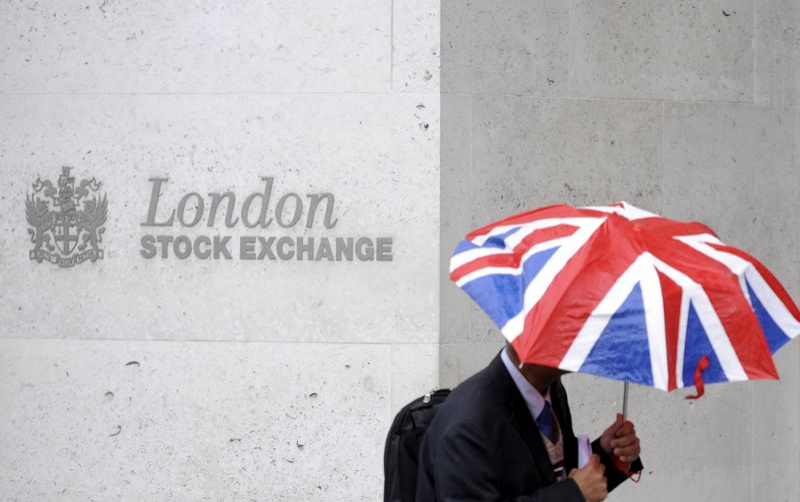FTSE 100 slips as COVID cases jump; but marks fifth consecutive monthly gain By Reuters

By Shashank Nayar and Amal S
(Reuters) -London’s FTSE 100 fell on Wednesday on concerns that a recent jump in coronavirus infections could hinder the pace of economic growth, taking the shine off the fifth straight monthly gain for the blue-chip index.
The FTSE 100 eased 0.7%, but clocked its best monthly winning streak since 2016.
Heavyweight financials led declines, down 0.7%, followed by base and precious metal miners which were down 1.2% and 0.8% respectively.
The index has gained 8.9% so far this year to stand just under 12% away from its record high. However, it has significantly underperformed its European peers with the STOXX 600 hovering near its all-time high, as inflation concerns and rising COVID-19 infections hinder the recovery process.
“There is a sense of general unease at the moment as we’re seeing a rise in the number of Delta variant cases, while we’re just under three weeks away from what is supposed to be ‘Freedom Day’ for the UK,” said Danni Hewson, analyst at AJ Bell.
Retailers slipped 0.4% after an industry group said growing costs linked to COVID-19 and Brexit might add to the rise in broader inflation soon.
“Investors are just taking a look at the support mechanisms winding down, “Hewson said, referring to business rates support and the furlough scheme.
“Then wondering whether or not the economy really is going to open up and then trying to balance that with rising prices.”
The domestically focussed mid-cap index slipped 0.7%
Dixons Carphone (LON:DC) jumped 5.9% after the electricals retailer reported a 34% rise in annual profit.
Opioid addiction treatment maker Indivior Plc rose 6.4% to the top of the FTSE 250 index after it said its 2021 revenue and profit would be significantly above its previous outlook.
Non-Standard Finance slid 23%, after the British sub-prime lender said it plans to close its guarantor loans division.
Automakers fell 1.1% after car dealership Pendragon warned that vehicle orders were being delayed due to a global chip shortage and flagged further supply constraints in the second half.

